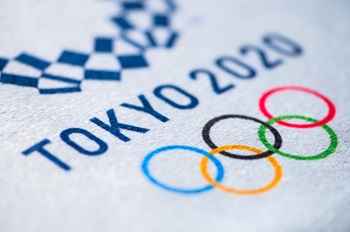SQF Code Recognized as a Procurement Standard for the 2020 Tokyo Olympic and Paralympic Games

Arlington, VA– The Safe Quality Food Institute (SQFI) is proud to announce that the SQF Food Safety Code for Primary Production has been recognized as a procurement standard for the 2020 Tokyo Olympic and Paralympic Games.
The recognition includes the production of livestock (beef cattle, dairy cattle, chickens and pigs); growing and production of fresh fruit, vegetables, and nuts; and extensive broad-acre agricultural operations including rice production.
SQFI has developed an addendum to supplement the SQF Primary Production Code that prescribes the stringent sustainability, environmental and welfare requirements prescribed by the Tokyo Organizing Committee. Growers and producers will be required to achieve and maintain certification to the SQF Food Safety Code for Primary Production and the SQF Tokyo Sustainability addendum.
“SQFI is honored to be recognized by the Tokyo Organizing Committee and to be given the opportunity to integrate our globally recognized, GFSI benchmarked food safety management standard with Tokyo’s rigorous sustainability requirements,” said Robert Garfield, Chief Food Safety Assessment Officer & SVP at SQFI. “SQF certification allows food safety and quality systems to be verified and validated throughout the food chain, increasing brand protection, consumer confidence and loyalty. SQF is recognized by retailers, foodservice providers and regulatory agencies around the world that require HACCP food safety and quality management systems by their suppliers.”
The Safe Quality Food (SQF) program is recognized by retailers and foodservice providers around the world as a rigorous, credible food safety management system. It is the only certification system recognized by the Global Food Safety Initiative (GFSI) that offers certificates for primary production, food manufacturing, packaging and distribution. This enables suppliers to assure their customers that food has been produced, processed, prepared and handled according to the highest possible standards, at all levels of the supply chain. Additionally, as a division of the Food Marketing Institute (FMI), the SQF program incorporates continual retailer feedback about consumer concerns. This information is passed on to SQF certified suppliers, keeping them a step ahead of their competitors.
Recent Blog Posts
Renee McVey is one of the first industry professionals to hold the Safe Quality Food Institute’s new Certified SQF Practitioner credential, which is administered by Exemplar Global.
The Safe Quality Food Institute announces ASI Food Safety's Stacey Brown and Redbarn Pet Products' Renee McVey as recipients of the 2025 SQF Excellence Awards.
I’m thrilled to share an update on our journey in developing SQF Code Edition 10—a process built on collaboration, transparency, and shared industry insights.




